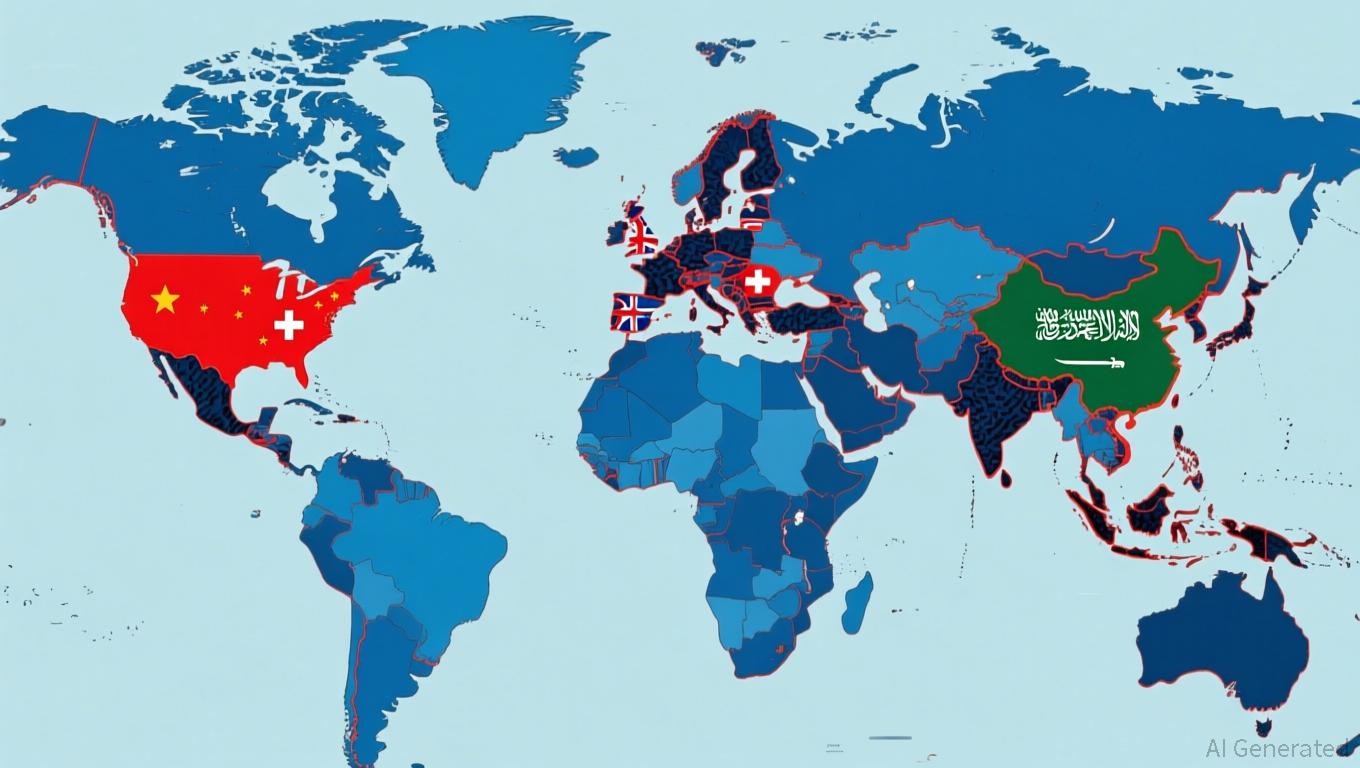NEAR Intents' trading volume reaches $483M in September
Key Takeaways
- NEAR Protocol's AI-driven trading ecosystem processed $483 million in trading volume during September 2025, signaling strong adoption.
- NEAR Intents powers cross-chain swaps and payments for AI agents without requiring bridges, simplifying blockchain interoperability.
Share this article
NEAR Intents, part of NEAR Protocol’s AI-powered trading and transaction infrastructure, generated $483 million in trading volume during September, highlighting growing adoption of its cross-chain transaction capabilities.
NEAR Intents, a cross-chain transaction layer, enables AI agents to perform swaps and payments across multiple blockchains without bridges. The increased trading volume comes as Near Protocol continues its push into AI agent development and chain abstraction technology.
NEAR Protocol recently partnered with Aptos and Shelby to enable cross-chain swaps via NEAR Intents, enhancing AI-ready infrastructure for autonomous agents. The blockchain platform launched the Shade Agent Sandbox, allowing developers to build verifiable AI agents integrated with NEAR Intents for autonomous cross-chain actions.
The protocol expanded NEAR Intents to additional blockchains including Cardano, supporting privacy-first transactions designed for AI agents. NEAR Protocol focuses on ecosystem scaling through sharding technology and its intents-based architecture.
Bitwise, a crypto index fund manager, has offered a regulated NEAR staking ETP product that provides institutional and retail access to NEAR through efficient staking exposure.
Share this article
Disclaimer: The content of this article solely reflects the author's opinion and does not represent the platform in any capacity. This article is not intended to serve as a reference for making investment decisions.
You may also like
Monero’s reputation for privacy faces challenges from modular competitors and evolving regulations
- Monero (XMR) nears $400 as privacy-focused crypto gains traction amid evolving market demands for modular solutions. - Emerging rivals like Solana's GhostwareOS and Zcash challenge Monero's dominance with interoperable privacy features. - Regulatory pressures, including South Korea's expanded AML rules, heighten scrutiny on privacy coins despite their anti-surveillance design. - Analysts highlight Monero's "extreme privacy" legacy but note growing adoption of integrated privacy tools in active blockchain

As Crypto Markets Fluctuate, BI DeFi's Eco-Friendly Cloud Approach Draws Growing Attention from Institutions
- BI DeFi launches a blockchain-powered cloud computing platform combining renewable energy and advanced security to stabilize crypto market risks. - XRP's $180M inflow highlights growing institutional interest in digital assets despite broader market volatility and billions in sector outflows. - The platform's green energy data centers and automated yield settlements address ESG priorities while reducing blockchain's carbon footprint. - User-friendly features like $17 introductory contracts and $50K affil

FDV's Dilemma: Assessing Opportunity While Concealing Risk
- FDV (Fully Diluted Valuation) has become a 2025 key metric for evaluating crypto projects' long-term risks and scalability, especially for new layer-1 blockchains like Monad and Apertum. - Monad's $3.9B FDV despite 12% unlocked supply highlights "low float, high FDV" dynamics, while Apertum's 1.05x FDV-to-market cap ratio signals minimal dilution risk. - Critics note FDV's limitations, including price volatility assumptions and irrelevance for uncapped supply projects like Ethereum , requiring contextual

Switzerland Delays Crypto Information Exchange Pending International Coordination
- Switzerland delays crypto tax data sharing with foreign nations until 2027, citing unresolved CARF partner agreements. - The OECD's 2022 framework requires member states to exchange crypto account details, but 75 countries including the EU and UK face implementation challenges. - Transitional measures ease compliance burdens for Swiss crypto firms while awaiting finalized international data-sharing protocols. - Major economies like the U.S., China, and Saudi Arabia remain outside CARF due to non-complian

